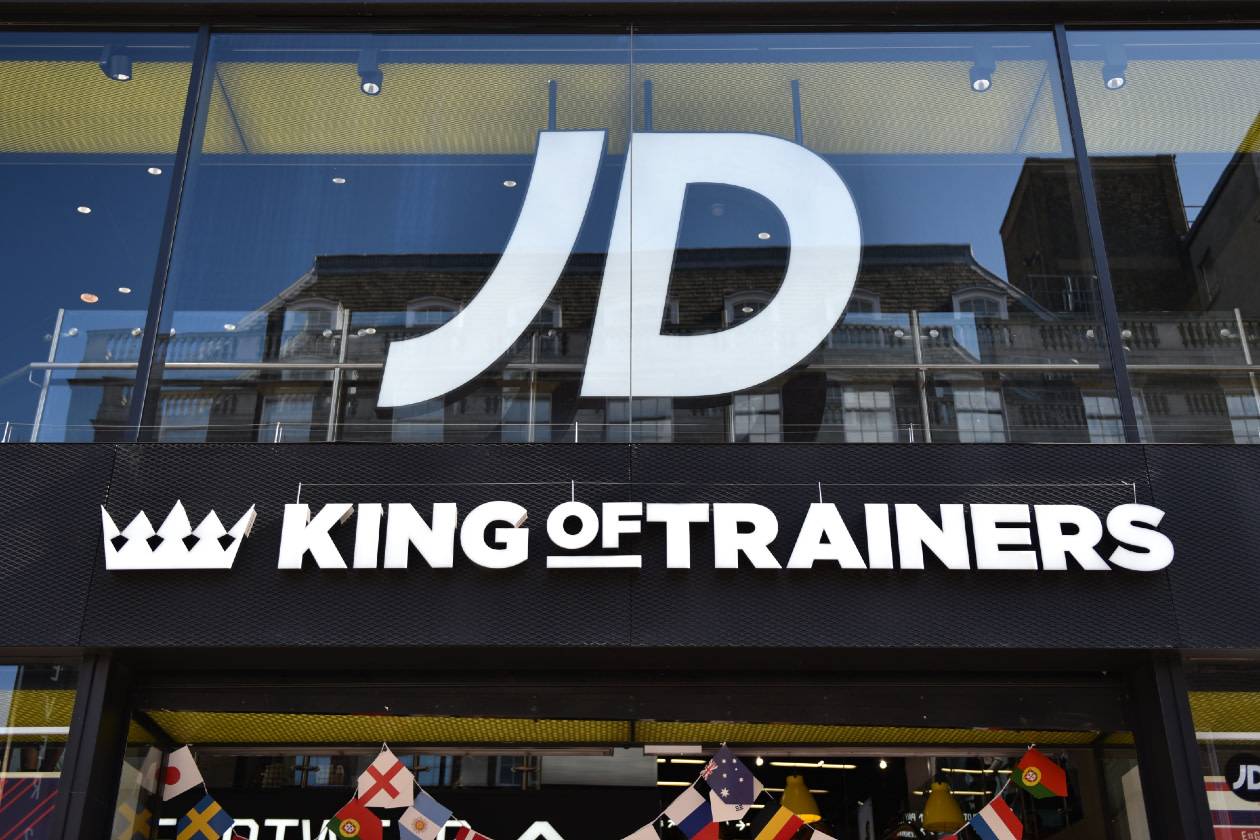JD Sports' full-year sales grew organically by 5.8% to £11.5bn, ignoring the impact of exchange rates. All regions saw growth except the UK.
Underlying profit before tax was £923mn, in line with the group’s guidance, but 2.9% down on last year. Profitability was impacted by lower gross margins, increased infrastructure investment and higher borrowing costs related to the recent Hibbett and Courir acquisitions.
Free cash flow was improved by £0.1bn to £0.7bn. Net debt rose from £1.5bn to £3.0bn, reflecting increased borrowing to finance acquisitions.
Organic sales growth in the first quarter of this year was 3.1%, in-line with group expectations. No full-year guidance was given, but market consensus points to full-year underlying pre-tax profits of £890mn.
A final dividend of 0.67p per share was announced, bringing the full-year total to 1.0p, up 11.1%. The group has commenced a share buyback programme of £100.0mn, which it expects to complete by the end of July 2025.
The shares fell 9.7% in early trading.
Our view
JD Sports’ full-year results were broadly in line with group expectations. But markets chose to focus on a weak start to trading in the new year, causing the shares to fall sharply on the day.
The US is the main weak point as things stand. That’s due to a combination of a tough macroenvironment, product launch delays and heavy discounting by peers. JD’s been holding firmer on pricing than competitors, who have leaned into more promotional activity to help clear stock. The company appears to be digging its heels in on this front, not wanting to engage in a fire sale of stock and tarnish its reputation as a more premium store.
Recent acquisitions in the US and France have massively expanded the group’s footprint. The focus is now on converting them to the JD brand and leveraging the cost efficiencies this increased scale can bring. With that, the group’s looking to shift its focus from expansion to cash generation, and JD expects to grow ahead of the market (expected market growth: 2-3%) over the medium term.
There is an elephant in the room though – tariffs. The Hibbett acquisition means that the US is now JD Sports’ largest region by sales. Many sports goods are manufactured in countries like Vietnam and China. Given that President Trump’s tariffs heavily target these regions, the cost of goods produced there and brought into the US is expected to rise. The economic outlook is deteriorating, and demand for discretionary items like JD sells is likely to suffer more than other areas of retail.
Market forecasts for underlying pre-tax profits of £890mn this year point to a decline, but this does include the impact of tariffs. Looking past the near-term uncertainty, we’re pleased with the change of focus from expansion to squeezing the most out of its store footprint. That should strengthen the balance sheet and increase shareholder payouts, although there are no guarantees.
The challenges look priced into the current valuation, which sits well below the long-run average, offering both upside potential and some downside protection. But we can’t rule out the profit outlook for this year worsening as the picture on tariffs can change quickly, and consumer sentiment remains weak.
Environmental, social and governance (ESG) risk
The retail industry is low/medium in terms of ESG risk but varies by subsector. Online retailers are the most exposed, as are companies based in the Asia-Pacific region. The growing demand for transparency and accountability means human rights and environmental risks within supply chains have become a key risk driver. The quality and safety of products as well as their impact on society and the environment are also important considerations.
According to Sustainalytics, JD Sports’ management of ESG risk is strong.
The group’s environmental policy is strong and executive remuneration is explicitly linked to sustainability performance targets. There is also an adequate whistleblower policy in place. However, ESG reporting and disclosures fall short of best practice.
JD Sports key facts
All ratios are sourced from LSEG Datastream, based on previous day’s closing values. Please remember yields are variable and not a reliable indicator of future income. Keep in mind key figures shouldn’t be looked at on their own – it’s important to understand the big picture.
This article is not advice or a recommendation to buy, sell or hold any investment.No view is given on the present or future value or price of any investment, and investors should form their own view on any proposed investment.This article has not been prepared in accordance with legal requirements designed to promote the independence of investment research and is considered a marketing communication.Non - independent research is not subject to FCA rules prohibiting dealing ahead of research, however HL has put controls in place(including dealing restrictions, physical and information barriers) to manage potential conflicts of interest presented by such dealing.Please see our full non - independent research disclosure for more information.


